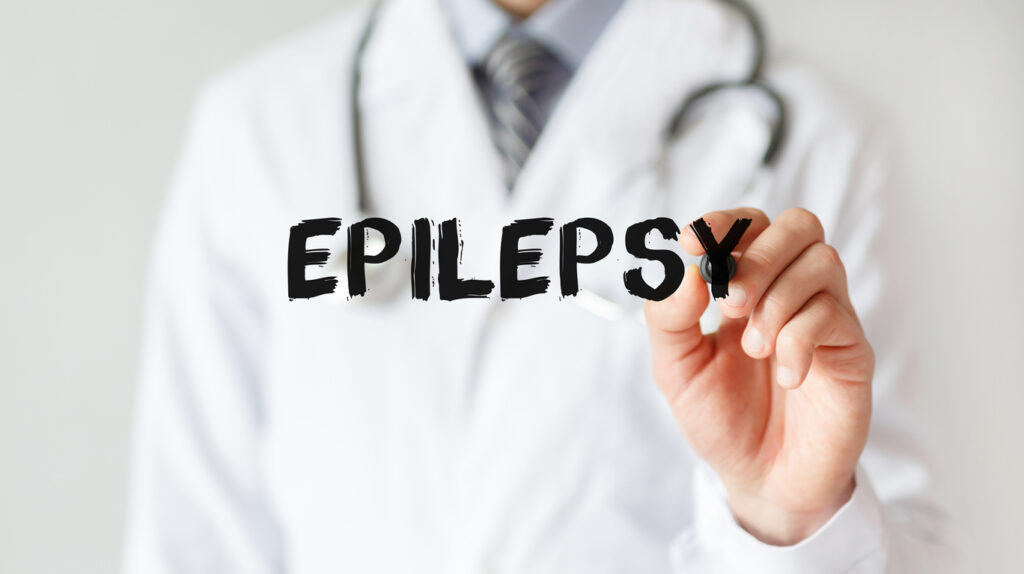Ketogenic Diet and Epilepsy

The liver converts fats to ketone bodies, which reach the brain and are used as a source of energy. Ketone bodies affect the methylation, acetylation and transcription of genes involved in nutrient metabolism, inflammation and oxidative stress, being efficient in treating at least half of adults with severe epileptic disease who are resistant to conventional drugs.
In a study published in 2022, it was shown that the ketogenic dietary therapy significantly reduced seizure numbers in 7 out of 8 patients and caused modifications in the transcription of 4630 genes and 230 miRNAs, with genes involved in protection against epileptic crisis being mainly changed. These genes encode for ion channels, neurotransmitter receptors and synapse structural proteins [1].
The clinical dietitian will calculate the amount of fat in the diet and the proportion of each nutrient. To be sure that the diet is working, the menu must be followed for at least 3 to 4 months, and then continued for at least 2 to 3 years or longer, as needed.
It is worth highlighting that there is a need for monitoring of side effects such as lethargy, anorexia and gastrointestinal complications, growth delay, metabolic acidosis and dyslipidemia.
Specific nutrient supplementation may be necessary. Nutrients such as vitamins B6 and C, the minerals manganese, magnesium and zinc, in addition to inositol have also been studied as adjuvants in the treatment of seizures and epilepsy.
One other option for drug resistant epilepsy is the Modified Atkins Diet (MAD). The modified Atkins diet (MAD) is a less restrictive form of the ketogenic diet and can be an alternative both for children and adults. A study compared the diet to the drug levetiracetam. In an open-label controlled trial, 101 children were randomized to 12 weeks of MAD or levetiracetam, and their seizure symptoms were monitored. At 12 weeks, both the proportion of children with >50% seizure reduction and the change in mean seizure frequency were significantly higher in the MAD arm compared to the levetiracetam arm. Constipation (41.1%) was the most frequent adverse effect with MAD; sedation/lethargy (18%) and anxiety and irritability (14%) were the most frequent adverse effects in the levetiracetam group [2].
Despite the traditional ketogenic diet being superior to mad for controlling epilepsy in children, a meta-analysis aimed to evaluate the efficacy and tolerability of MAD compared to traditional KD in children with drug resistant epilepsy found no significant differences in seizure freedom and both diets had similar safety profiles [3].
According to researchers at Johns Hopkins Hospital, the diet is safe and effective and helps to improve psychomotor development, besides having positive effects on cognition and behavior [4]. One of the difficulties of families is finding products that support their new lifestyle and here at BeKeto you will find a range of foods and supplements to facilitate the ketogenic diet therapies for your family.
Bibliography:
[1] Ruiz-Herrero J, Olaso-Gonzalez G, Serna E, Cañedo-Villarroya E, Correas AG, Gambini J, Gomez-Cabrera MC, Pedrón-Giner C, Vina J. Transcriptomic profile of epileptic children treated with ketogenic therapies. J Integr Neurosci. 2022 Jan 28;21(1):31. doi: 10.31083/j.jin2101031. PMID: 35164467.
[2] Archna, Garg D, Goel S, Mukherjee SB, Pemde HK, Jain P, Sharma S. Modified Atkins diet versus levetiracetam for non-surgical drug-resistant epilepsy in children: A randomized open-label study. Seizure. 2022 Dec;103:61-67. doi: 10.1016/j.seizure.2022.10.015. Epub 2022 Oct 14. PMID: 36306706.
[3] Mhanna A, Mhanna M, Beran A, Al-Chalabi M, Aladamat N, Mahfooz N. Modified Atkins diet versus ketogenic diet in children with drug-resistant epilepsy: A meta-analysis of comparative studies. Clin Nutr ESPEN. 2022 Oct;51:112-119. doi: 10.1016/j.clnesp.2022.09.004. Epub 2022 Sep 10. PMID: 36184195.
[4] Ruan, Y., Chen, L., She, D. et al. Ketogenic diet for epilepsy: an overview of systematic review and meta-analysis. Eur J Clin Nutr 76, 1234–1244 (2022). https://doi.org/10.1038/s41430-021-01060-8


